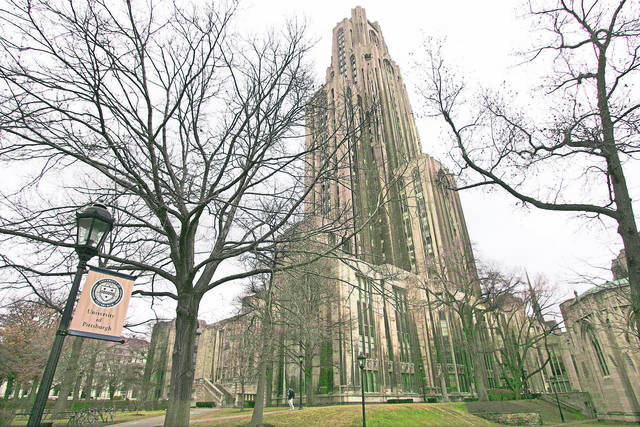Students struggling to make ends meet after colleges and universities shuttered earlier this spring could soon see extra cash in their bank accounts.
Schools across the country are receiving millions of dollars for eligible students as part of the CARES (Coronavirus Aid, Relief, and Economic Security) Act. It provides students with money to help cover costs related to course materials and technology, food, housing, heath care and childcare after schools largely moved to online learning in the coronavirus shutdowns.
“Working to cover the cost of living is difficult as a full-time student, and many students have stopped working or have reduced hours as a result of the pandemic,” said Nicole Mikologic, 24, who is enrolled in the doctor of physical therapy program at the University of Pittsburgh. “Funding from the CARES Act is helpful to cover living expenses and offset lost wages.”
Congress passed the CARES Act in March as part of a $2 trillion stimulus package. Almost $14 billion is allocated for the Higher Education Emergency Relief Fund. Nearly $8 billion can be used by schools to offset losses from refunding tens of thousands of students a portion of their room and board payments, fees from student recreation centers, parking and others.
The other $6.3 billion must be made available as cash grants for students.
“I am very grateful that I qualify for this grant through the CARES Act and that Pitt was able to distribute the funds so quickly after notifying me,” Mikologic said.
Across all five Pitt campuses, about 11,000 undergraduate and graduate students will receive between $500 and $1,000, according to the school’s website. In total, Pitt received over $21 million from the CARES Act. About $10.6 million must go toward students struggling in the pandemic.
The amount awarded to schools is based on the number of full-time students who are eligible for the Pell Grants, which is largely determined by the Free Application for Federal Student Aid (FAFSA). The total school population and number of students who are not enrolled full-time online before the pandemic are also taken into consideration.
Based off the amount received, schools decide which students qualify to receive a grant from the CARES Act.
Schools across W. Pa.
At Pitt, students who are eligible are undergraduates who received a 2019-20 federal Pell grant; undergraduates who did not receive the grant but who owed tuition not covered by loans or grants; and graduate students who received a federal loan for the spring term or who did not borrow but would have received a summer stipend.
Displaced students formerly employed at one of Pitt’s food service providers and resident assistants who lost meal plan access are also eligible.
“We are committed to supporting our students in every way possible during this challenging time,” Ann E. Cudd, Pitt’s provost and senior vice chancellor, said in a statement. “Ensuring that eligible students with need receive CARES grants as soon as possible is a top priority.”
Duquesne University received over $2.6 million that will be distributed to about 6,000 eligible students, said university spokesperson Rose Ravasio. In total, the school received over $5.3 million.
“Many students experienced issues as a result of this pandemic,” she said. “The CARES Act student relief grants go directly to students for their expenses related to the disruption of campus operations due to coronavirus, such as food, housing, course materials, technology, health care and child-care expenses.”
In Greensburg, Seton Hill University will distribute $633,423 to students out of $1.2 million the university received.
The first batch will go to low-income students who received the federal Pell Grant or who have a low estimated family contribution. Another set of funds will be available to students who don’t fall in those categories but whose circumstances have changed because of the pandemic.
According to spokesperson Jennifer Reeger, Seton Hill students will have to fill out an application on how the coronavirus has changed their financial circumstances.
Saint Vincent College in Unity received over $1.6 million, according to spokesperson Jim Berger. Of that, a minimum of $802,718 must go toward students.
Berger was unable to provide how many eligible students are at the school.
“Saint Vincent College is a community of learners and whether our community members are here or are elsewhere, we care for them and try as best we can to support them on their life’s journey,” he said. “We are blessed to be able to offer this and other forms of support to Bearcats everywhere.”
Other area schools that received money from the CARES Act include California University of Pennsylvania, $4.3 million; Carlow University, $1.3 million; Carnegie Mellon University, $5.7 million; Chatham University, $1.1 million; Community College of Allegheny County, $7.9 million; Edinboro, $4.1 million; La Roche University, $1.2 million; Robert Morris University, $3.3 million; Slippery Rock University, $7.3 million; and Westmoreland County Community College, $2.3 million.
“What’s best for students is at the center of every decision we make,” U.S. Secretary of Education Betsy DeVos said in a statement. “That’s why we prioritized getting funding out the door quickly to college students who need it most. We don’t want unmet financial needs due to the coronavirus to derail their learning.”








